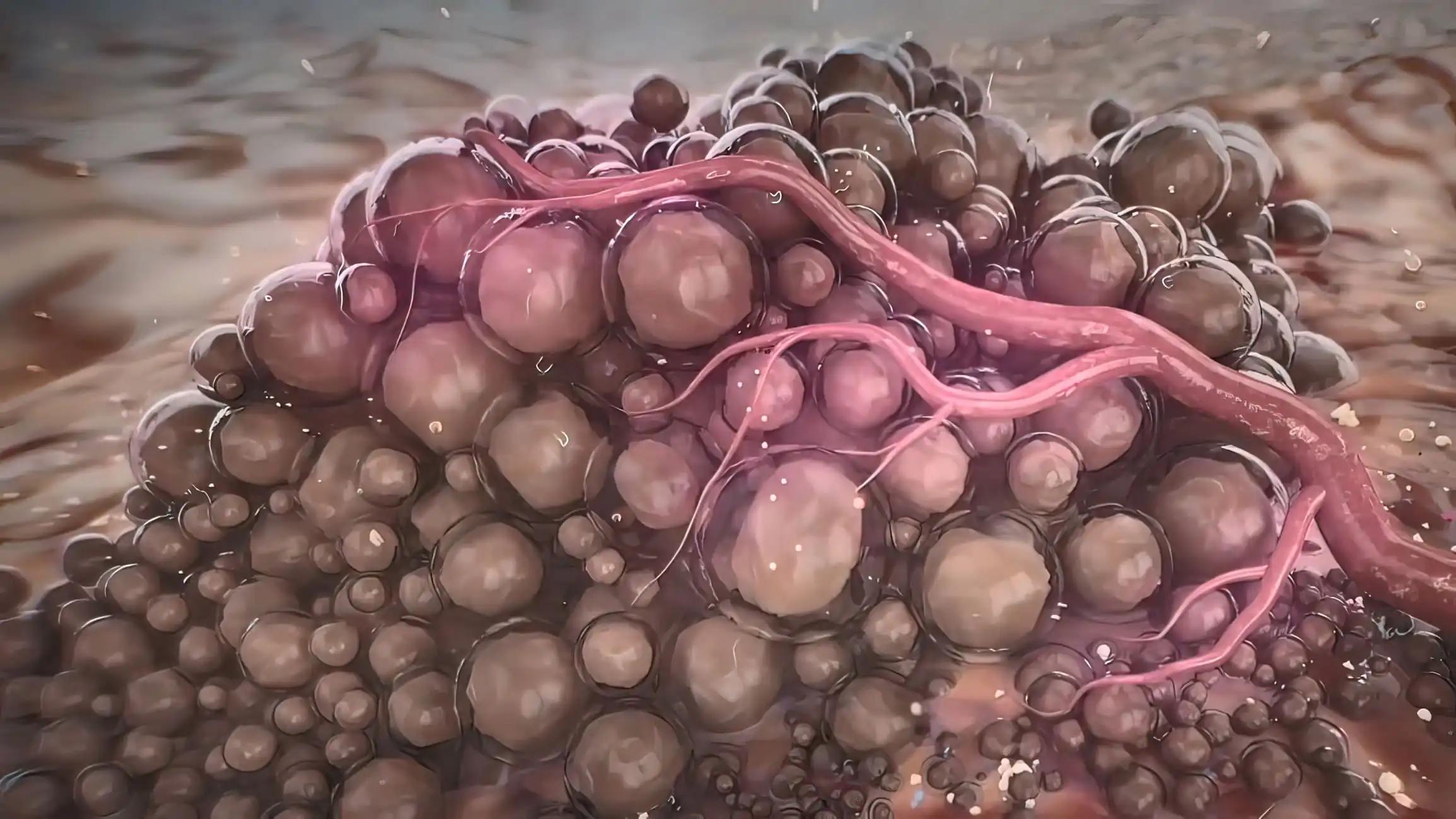KEY TAKEAWAYS
- The study aimed to investigate the prognostic significance of PCD pathways in SKCM for personalized treatment strategies.
- The analysis showed CDI’s prognostic value in SKCM, indicating potential for personalized treatment and improved outcomes.
Programmed cell death (PCD) pathways are crucial in skin cutaneous melanoma (SKCM) pathogenesis. Understanding their prognostic significance and clinical implications is essential for developing personalized treatment strategies.
Xiaoxia Wu and the team aimed to investigate the prognostic significance of PCD pathways in people with SKCM to inform personalized treatment strategies.
Using data from The Cancer Genome Atlas (TCGA)-SKCM cohort (n=353), about 1,466 PCD-related genes were analyzed. Researchers established and validated the prognostic cell death index (CDI) through survival analysis and predictive modeling. They conducted functional enrichment, protein-protein interaction (PPI) analysis, consensus clustering, tumor microenvironment assessment, and drug sensitivity analysis to elucidate the biological and clinical relevance of CDI.
The results revealed that CDI effectively stratified individuals with SKCM into high and low-risk groups, demonstrating significant differences in survival outcomes. CDI showed predictive value for survival at 1, 3, and 5 years. The concordance index (C-index) was 0.794 in the training set and 0.792 and 0.821 in the internal and external validation sets, respectively. The area under the curve (AUC) was above 0.75 in all data sets.
Functional enrichment analysis revealed significant associations with immune response and inflammatory processes. Protein-protein interaction (PPI) analysis identified key molecular modules linked to apoptosis and chemokine signaling. Consensus clustering unveiled three distinct subtypes with notable survival disparities based on CDI expression profiles. Tumor microenvironment assessment highlighted correlations with immune cell infiltration, including M1 macrophages and T cells. Drug sensitivity analysis indicated strong correlations between CDI levels and response to immunotherapy.
The study concluded that the analysis establishes the prognostic significance of PCD-related genes in SKCM. CDI emerges as a promising prognostic biomarker, providing insights into tumor biology and potential implications for personalized treatment strategies. Further validation and clinical integration of CDI are warranted to enhance SKCM management and improve outcomes for individuals with the condition.
No funding-related information was available.
Source: https://pubmed.ncbi.nlm.nih.gov/38766879/
Wu X, Chen S, Ji Q, et al. (2024). “Characteristics and significance of programmed cell death-related gene expression signature in skin cutaneous melanoma.” Skin Res Technol. 2024 May;30(5):e13739. doi: 10.1111/srt.13739. PMID: 38766879; PMCID: PMC11103559.



